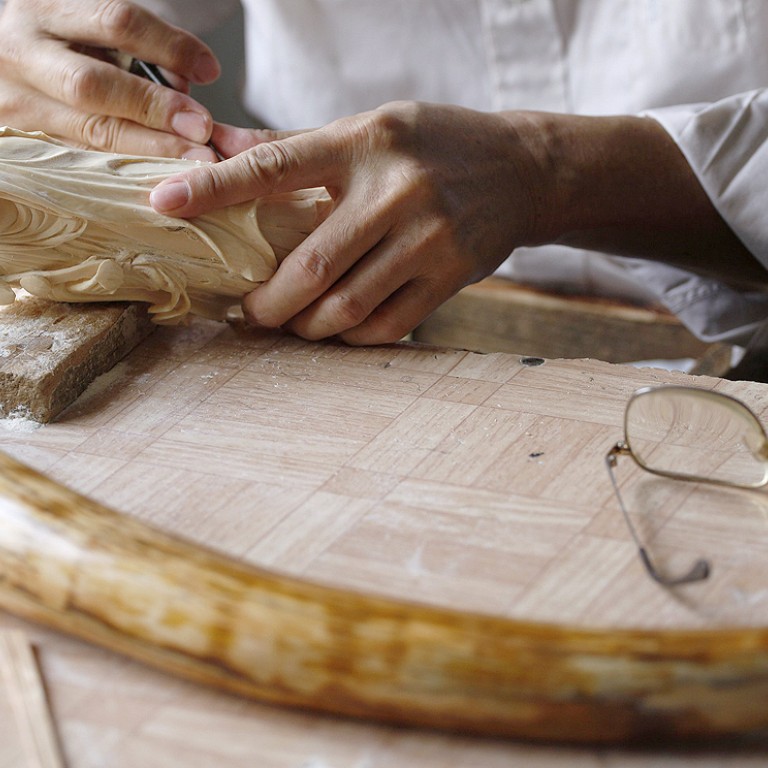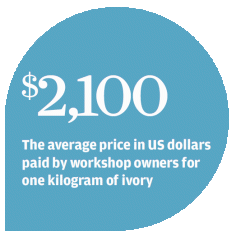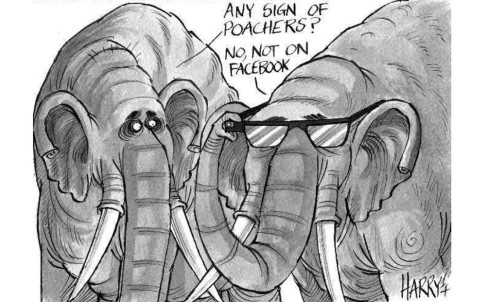
Elephant ivory prices triple in Chinese workshops
The price of elephant ivory for workshop owners in China has tripled over the last four years even though sale prices in Africa are low, according to a new study by ivory researchers.
The price of elephant ivory for workshop owners in China, the world's biggest market, has tripled over the last four years even though sale prices in Africa are low, according to a new study by ivory researchers.

Ivory experts Esmond Martin and Lucy Vigne discovered the high price sought for ivory after touring hundreds of Chinese retail outlets and factories. Their findings in May this year contrasted with a 2010 report they published which found prices in Fuzhou in Fujian province were three times cheaper.
"The average price paid by craftsmen or factory owners for good quality, privately owned 1kg to 4kg elephant tusks in Beijing in early 2014 was US$2,100 [HK$16,275] per kilogram. The average price for similar tusks in 2010 was US$750," said Martin.
Factories and retailers can generate higher prices for ivory products once they are carved, further inflating the price.
Google Glass and drones leading the fight against poaching in Nepal
Conservation critics argue that demand for ivory is increasing as supply drops because various countries are burning their ivory stocks. The group, Save the Elephants, also finds that the disparity in prices in Africa and Asia is distorting demand.
Gangs earn money by buying ivory in Africa at one-tenth of the resale price once it reaches the mainland. They exploit the low price in Africa and high demand in China, while bearing the risk of moving the cargo abroad. This all happens as African elephants are threatened with extinction.
"Without concerted international action to reduce the demand for ivory, measures to reduce the killing of elephants for ivory will fail," said Iain Douglas-Hamilton, founder of Save the Elephants, whose organisation contributed funding for the research in China.
China, often blamed for fuelling demand, has taken significant steps in the past year to cool demand in what is the largest consumer market for ivory. It has adopted a zero-tolerance approach to poaching syndicates, including tough sentences for wildlife crimes and boosting law enforcement through asset seizures and extradition.
Mainland officials destroyed six tonnes of elephant tusks in the hope that it would send a clear message to those involved in the illegal wildlife trade.
Trinkets made from ivory, sometimes known as "white gold", are a traditional symbol of wealth in China. Some of the ivory is believed to go through Hong Kong, which is a large transit hub for tusks.
Tom Milliken, elephant and rhino programme leader at wildlife monitoring network Traffic, said tougher policing made it more expensive to ship ivory abroad without paying bribes.
Retail prices in Hong Kong stores have risen 50-fold in a decade, to as much as HK$230,770 a kilogram for tusk ornaments.


